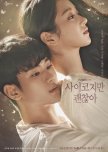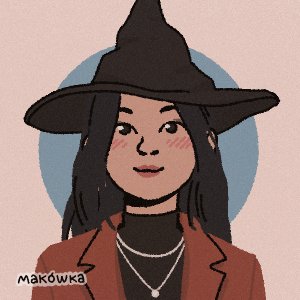
Cette critique peut contenir des spoilers
Great first half, meh second half, fantastic CP
This show most strongly reminds me of Doctor Who, which (back when it was good!) would lead us on a lot of ridiculous adventures - some epic, some absurd, maybe even straight up silly. But no matter how nonsensical the writing got, there was always the emotional throughline of the Doctor's character (and maybe his relationship with his companions) to keep you invested and engaged with the story.So that's kind of like Guardian - Shen Wei and Zhao Yunlan's relationship is the emotional throughline that keeps you invested in this show. The writing really does go off the rails after episode 20 or so. After that I was basically watching for Shen Wei and Zhao Yunlan's CP moments - I guess that was kind of the point? They were basically the ones who injected all the feelings and intensity into all the silliness of that plot. This isn't a new insight or anything, but Bai Yu and Zhu Yilong's chemistry and their dialogue with each other saved this show. The whole show basically rides on these two men's excellent acting chops.
(As an aside, I think Zhu Yilong's Shen Wei is stronger than his Ye Zun. His portrayal of Ye Zun isn't bad by any means, but he did have these cartoon villain moments where he would yell some lines randomly or do that villain laugh that made me not take him as seriously. Maybe that's down to the writing or directing though? I can't say for sure.)
I think the show is really at its strongest when it has that episodic format, with relatively self-contained stories around different paranormal crime investigations. I was absolutely hooked during that part of the show, and if the rest of the show had that quality of writing throughout I would have rated this at least an 8, maybe even a 9. Those episodes introduced some really interesting concepts and narratives, and generally had very satisfying emotional pay-offs. Li Qian's story with her grandmother? Brought me to tears. That episode with the mirror girl and her boyfriend? Heartbreaking. Some episodes were genuinely creepy and gave me chills - see: the mirror girl episode. The performances from the one-off actors in those episodes weren't anything to write home about but it didn't matter that much to me because I liked the stories they were in. Even the Purple Hair Guy was properly creepy and intriguing until he started appearing a lot more - at that point he basically became a cartoon villain and I really couldn't take him seriously as an antagonist.
The latter half of the show is where I think censorship really impacted this production. I know something of the original setup in the novel as well as the original ending, and I think it's a real shame that such an epic-sounding story was de-fanged like this. The censorship-friendly re-work of the concept wasn't in itself a bad idea - a sci-fi paranormal setup with aliens, superpowered people, and altered genetics actually sounds kind of cool. And when the show was very episodic, that was probably quite easy to work with. But when the writers had to rework the more epic fantasy parts from the novel into the latter half of the show... that's when they ran into some problems. Based on what I know, the latter half of that story draws *a lot* on the Chinese fantasy setups of the main characters and story - you know, the censored parts. And I can tell the writers really struggled to work these plot points into their sci-fi/paranormal rework. I don't think it was impossible to do at all, and I think they should have given all these writing decisions a lot more thought. But I do sympathize with how difficult a writing task like that probably is. There were some bright spots here and there, like the episode where everyone's personality gets messed up by that mind-altering substance which was super hilarious. But ultimately the result is a second act that is convoluted, unevenly paced, and generally doesn't make sense plot-wise. I actually felt bad about how uninvested I was in the plot, but I only really wanted to see the main CP. I will say that the bromance between Xiao Guo and Lao Chu was fun and touching at times though.
The other secondary characters were fine, although I feel like I'd prefer them in their original book context. I like Da Qing, but I don't like a lot of things the writers did with him. They half-heartedly tried to give him a romance and a father figure but I wasn't very invested in those relationships because they just didn't seem to go anywhere. Zhu Hong started out interesting, but so much of her character arc was consumed by her one-sided crush on Zhao Yunlan, which was cringey and made me lose interest in her. That cute librarian couple - I always forget their names, dammit - talk about two people who deserved better. (Also why did the guy have a stutter? Is that really what happens when you're imprisoned in a crystal column for thousands of years? I mean, this person led a whole rebellion against the elites in his society - was the trauma he went through afterwards enough to make him develop a stutter?)
As for the technical issues, the most glaring one is the dubbing quality. You have these weird moments where a character will be talking and all of a sudden the acoustics of their voice will be different, like they suddenly went into a different room, switched microphones, or maybe moved away from the microphone. Super distracting. Also there's the bad CGI... but that's just kind of par for the course in Chinese dramas. It's not that much worse than the early days of the Doctor Who reboot, if you ask me.
I probably wouldn't rewatch this entire show, but just the episodes with my favorite Shen Wei/Zhao Yunlan moments. However, I might be interested in a rewatch after reading the novel, which sounds really intriguing to me. Maybe it would help recontextualize a lot of things for me?
Cet avis était-il utile?

It’s Okay to Not Be Okay
1 personnes ont trouvé cette critique utile
Cette critique peut contenir des spoilers
Earnest tearjerker despite some issues
I don't think I've ever watched a show before where the majority of episodes made me cry, but this is it. This was my first Kdrama, since I've been trying to diversify the Cdrama-heavy landscape of my Asian drama watching, so I had no idea what I was getting into. So I was pleasantly surprised to find myself really invested in this story and the characters, both laughing out loud and crying ugly tears at turns.Now, this show is touted as one that pioneers discussion around mental health issues. Is it that groundbreaking? Not really, at least not in the world of international media. I admire the show's efforts to define medical terms, to show that therapy is necessary and important, and to humanize people with mental health issues (e.g. PTSD, alcoholism, autism). However, there's still many issues with its portrayals of the world of mental health care. The show is still often in danger of perpetuating stereotypes about various mental health issues/disorders, and there are times when I feel the healthcare workers in the show, including Doctor Oh, behaved problematically, unprofessionally and were sometimes straight-up unethical. There were important themes that were introduced but not well-explored, like those of addiction, and the long painful process that therapy often is. Nonetheless, I think a show like this is important to have in East Asia, where mental health is still a taboo subject - and hey, it's hard to find a show even in Western media that accurately portrays mental health issues and the therapy process.
On its own, this show is a fantastic and authentic portrayal of healing from trauma, and finding your own identity despite seemingly pre-determining forces. Ko Moon-young has a mother who I would describe as deeply narcissistic - she sees her daughter as an extension of herself, and did her darndest to suppress Moon-young's emotional growth during her childhood (this dynamic kind of reminded me of Ms. Havisham and Estella from Great Expectations?). Gang-tae has spent his whole life as his brother Sang-tae's keeper, an unhealthy situation that's exacerbated by them becoming orphans at a young age. I really loved seeing these three characters form and grow genuine relationships with each other, as well as their conflicts that often went to fraught, and even vicious places. Concerning the romance between Moon-young and Gang-Tae, I was pretty worried it would be a toxic relationship framed as a romantic one - and oh man it's toxic at the start! - but the show was surprisingly good at showing its evolution into a mutually healing relationship. There were parts that were a bit cheesy and felt hastily thrown together - but it's fine, I'll take it. Sang-Tae is great, and his character arc is so rewarding. He's kind of a character stereotype of the autistic man with an idetic memory and savant-like abilities, but the show handles him with such tenderness and grace. Oh Jung-Se is fantastic at bringing out this character's vulnerability, warmth, and moments of genuine strength. In fact all three of these actors are excellent and I admire their willingness to take their character moments to raw and uncomfortable places many times during this show.
(By the way, I loved Ko Moon-young's fashion, especially her witchy wardrobe at the beginning. I liked that her clothes became lighter and less ostentatious as the show progressed, but I did miss those dark witchy dresses.)
Generally I loved how grounded and human most of the characters were in this show. They all make mistakes and sometimes even have crippling flaws, but ultimately mean well in their own way. I ended up sympathizing with characters I didn't even expect to care about, like Sang-in, who was kind of a buffoon in the beginning, or Joo-ri, who just seemed like the third corner of a love triangle at first. Even characters I dismissed as irrelevant wankers turned out to have vulnerabilities and completely understandable motivations.
Even if the mental health themes were thoroughly explored, there were other really interesting recurring themes that the show explored really well. Food as proxy for emotional warmth is recurring motif, and reflects how characters like Ko Moon-young accept care from others even if they can't verbally express the need. There's also a theme of stories and fairy tales as ways of communicating with the world about life. Another big theme is parenthood - there are lots of parents in this show, and for the most part they all approach parenthood in the best way they know how. We go from the grounded and loving parenting style from Joo-ri's mother, to the flawed but well-meaning style of the two brothers, to the deeply toxic and domineering style of Moon-young's mother Do Hui-jae. I especially appreciated that with respect to Sang-tae and Gang-tae's mother, we can see how much Gang-tae was hurt by her investment of energy in Sang-tae over him, but also how in retrospect she really loved him just as much and tried to be a good parent to him as well. If I were to expand on this theme I would have had the show explore the psychology of Do Hui-jae's narcissism and how that realized itself in her parenting.
This brings me to what I think is the biggest flaw of the show *SPOILERS AHEAD*
So I liked when Do Hui-jae was just this spectre who cast a shadow over the three main characters' lives - I liked the choice to not reveal her face for most of the show, which made her scenes that much more eerie. That way, she was more of a symbol for the amorphous nature of trauma and how it can shape your life without explicitly being present. But the moment she became a real person and became this typical horror villain who laughs maniacally, she was so much harder to take seriously. I waited for the show to add some complexity to her like they did with other characters, but unfortunately that did not happen. In a show that features such complex, human characters, Do Hui-jae just didn't fit in. The final arc where she shows up, messes up Sang-tae's painting and has a final showdown with the three mains felt like an aberration on the rest of the much more grounded story. The fairly high quality of the other episodes makes this much more frustrating - I probably would have rated this show a 9 or even a 10 if not for this set of three episodes. I wish the writers had found a way to make her presence remain ambiguous, or to make her a more nuanced character, but I guess we can't have everything.
But nonetheless this is great and moving show that comes across and authentic and earnest, and I definitely wouldn't be against watching it again.
Cet avis était-il utile?

Cette critique peut contenir des spoilers
Surprisingly good and thematically rich
This show really took me by surprise with how much I enjoyed it and got invested. I was looking for a fluffy romance drama to watch to break my typical xianxia streak, and I like Wang Yibo as an actor, so I decided to give this a try. This series definitely delivers on the cute romance, but I was also pleasantly surprised by how many other themes and dynamics are at play in this story. Apart from the central romance, the show also deals heavily with the two central characters' professional aspirations and their struggles to succeed and stay afloat in the exhilarating yet often cutthroat esports industry. They each have to navigate workplace politics, and also have to learn to leave a workplace when it becomes too toxic. I especially identified with Qiu Ying's character, who desires independence for personal reasons, which I can respect. I also liked how Ji Xiang Kong and Qiu Ying's arcs paralleled each other in how they both hit rock bottom, and rise to the top again by the power of their own grit. Ultimately I really loved this story of these two individuals who work hard, push each other to succeed, and end up as a badass power couple.I feel like a lot of people on here took issue with the love triangle arc with MiYah - typically, I'm not super into love triangles either. But the way it was presented in the show, I empathized with everyone in this situation. I actually really sympathize with the character of MiYah, because her life is quite tragic. She became famous at a young age and was forced to give up JXK, the one person who really knew her original, authentic self. Along the way she was probably incredibly lonely - her manager didn't let her date, so she probably didn't have the chance to meet any men who could see her as a complex human being. So naturally, she must have idealized the relationship she had with JXK, since he's the only one who's ever loved MiYah the person, not MiYah the idol. And the series does take care to show us that their relationship was authentic and valid in its own right, so it's not like MiYah had no grounds to believe she could be with her ex again. But what she doesn't realize, of course, is that she and JXK have evolved with time and aren't compatible anymore. I think the show was very honest about the emotional messiness of a situation like this, where one person might have emotionally moved on from a relationship after a breakup, but the other one hasn't. I also appreciate that no one in the love triangle was demonized - MiYah is acting from a very understandable, human place. She's certainly no angel - she gets a bit deluded and does some quite problematic things to keep JXK with her. But it's not like she makes any schemes to specifically sabotage Qiu Ying, even though they should be rivals, and she even appreciates how good QY is for JXK. I ultimately felt sad for MiYah - I hope that in the world of the story, she finds someone else who's right for her! In my book, if a show can make me feel of these complicated emotions about a set of characters, it's definitely succeeded.
I also get the impression a lot of people weren't fans of the part where Ji Xiang Kong takes care of MiYah towards the end and endangers his relationship with Qiu Ying. Is it a bit contrived how it happens? Maybe. But I also think it's kind of consistent with his character - Ji Xiang Kong strikes me as someone who tends to prioritize his duties and obligations over his own emotional needs. That's why it takes him longer to confront the fact that he's moved on from MiYah and really wants to be with Qiu Ying. He doesn't decisively choose until push comes to shove. If I were to change one thing about how that final arc plays out, I'd have him choosing to walk away from MiYah rather than having her give him permission to go - I just feel like that deprives him somewhat of his agency.
Something I really didn't like was how a scene of sexual assault was used as a plot device to progress Qiu Ying and JXK's relationship. Oooffff that wasn't good. And then that event is NEVER ADDRESSED AGAIN and the sexual assailant in question (one of the main antagonists in this show!!) is never specifically punished for that event. And then when JXK is trying to pick Qiu Ying and take her home when she's a sad drunk and yelling for him not to touch her I was cringing, because maybe you shouldn't? touch? the sexual assault victim??? I just don't like it when sexual assault is used to progress a love story. I know it's common it different types of media, but I don't have to like it.
Another character I really gravitated towards was Luo Tian. I was a bit nervous when I sensed the show making him another potential love interest for Qiu Ying, but it was handled surprisingly well IMO. He waits until he and Qiu Ying are basically professional equals before giving her hints about his feelings, so there isn't the problematic dynamic of a boss propositioning a subordinate. He also doesn't really pressure her at all, and lets her call the shots, which is all a girl can really ask from a guy. I also liked his indignation for Qiu Ying when he could see that JXK wasn't doing her right - he can see that this girl is worth it, and he thinks she deserves someone who can treat her well and not make her play second fiddle to an old flame. I came out of this massively respecting Luo Tian. I also hope he finds someone who will treat him well.
I also know the esports aspect of this show isn't completely accurate, if at all - my gamer boyfriend watched the finale with me, and he was laughing his ass off at how the characters used esports jargon, and also the way the story presented different game tactics. In his words, "for a show called 'Gank Your Heart', there's not even any 'ganking' in this show!" Maybe stuff like this will piss you off if you're a hardcore League of Legends or World of Warcraft player. For someone like me who doesn't favor video games like LoL, this might not be as important. I enjoyed the gaming competition scenes for different reasons - if there's something the show does well, it's ramping up both the character and plot tension in those scenes. That tournament scene with competitive stakes for JXK, professional stakes for Qiu Ying, and all kinds of implications for their relationship? Had me on the edge of my seat.
If there's another thing that made me slightly uncomfortable, it's the strong underlying nationalism of the show, and how Westerners are portrayed as these one-dimensional jerks. Of course, what did I expect - it's a story about how China is trying to win this prestigious esports championship from under the West. I get that the show itself is pro-China. But there were these times when it was laid on particularly thick. Given the political atmosphere and my own feelings on the Chinese government, I would have preferred that it wasn't *so* overt. But hey, at the end, even I was emotionally invested in the victory of Chinese esports - I guess that speaks to how well the show invested me in the characters?
Cet avis était-il utile?







